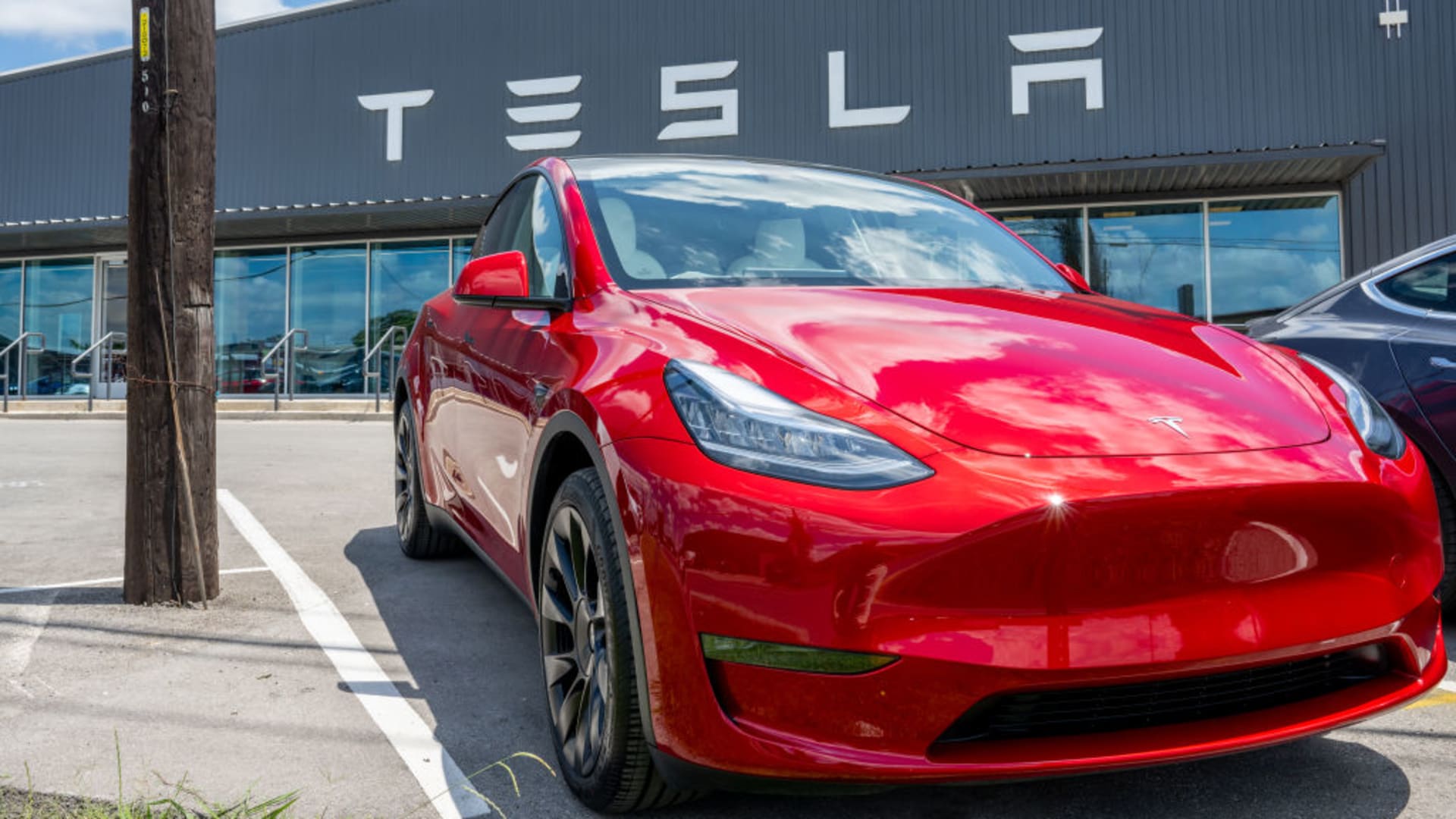A Tesla Model Y on a Tesla car lot in Austin, Texas, May 31, 2023.
In the fourth quarter of 2021, an employee of Tesla and a researcher in the tech industry filed a whistleblower complaint to the U.S. Securities and Exchange Commission (SEC) alleging potential violations of the law by Elon Musk’s car company. The allegations raised concerns about the impact on shareholders, employees, and customers of Tesla.
The complaint made various claims about Tesla’s financials and business practices. Among them were accusations that the company had improperly categorized repairs over the years and had inadequate control over internal systems used to capture business data that is essential for financial and other company disclosures to shareholders.
According to records reviewed by CNBC, the SEC assigned one person to investigate a part of the complaint related to Tesla’s accounting firm, PricewaterhouseCoopers. However, the agency closed the investigation a few months later without contacting the whistleblowers or reviewing the extensive evidence they had offered, including internal Tesla emails, spreadsheets, screenshots, recordings, and images.
When CNBC reached out to the SEC for comment, they declined to confirm or deny the existence of the complaint but stated that the agency considers all tips it receives. If the complaint leads to the SEC taking enforcement action and obtaining a monetary settlement or damages, the whistleblowers may be eligible for a financial reward.
During the two-year period since the complaint was initially filed, Elon Musk sold more than $39 billion worth of his shares in Tesla, including approximately $23 billion in 2022. He used these proceeds to fund a leveraged buyout of Twitter, the social network he now owns and has rebranded as X.
CNBC had the opportunity to review a redacted copy of the complaint, along with follow-up correspondence and internal Tesla documents that the whistleblowers had submitted to the SEC. The identities of the whistleblowers are known to CNBC but have been kept confidential due to concerns about potential retaliation by Musk.
Experts in accounting, business, and securities law were consulted to analyze the complaint and its implications. Ann Lipton, a corporate and securities law trial attorney, found the whistleblowers’ claims credible based on the specificity and amount of evidence they provided. Karen Nelson, an accounting professor, expressed concerns about Tesla’s internal control systems and the transparency of its financial and business information.
One of the serious allegations in the complaint relates to how Tesla categorizes repairs. Internal communications, guides, and policies obtained by the whistleblowers indicate that employees have been miscategorizing repairs for years, and Tesla management has been aware of the issue. This practice could result in the company misstating its financial information, particularly concerning warranty costs.
Unlike traditional automakers, Tesla follows a direct-to-consumer model, selling and servicing its cars without relying on franchised dealerships. Whenever a repair is completed, Tesla employees must classify it under various pay type categories, including warranty, extended service agreement, customer pay, rectification, and goodwill. The complaint alleges that Tesla has allowed employees to miscategorize repairs, potentially hiding warranty costs.
Under standard warranty accounting practices, companies set aside funds from each sale to cover future warranty repairs. The costs of these repairs are counted against the warranty reserves. However, the whistleblowers claim that Tesla’s miscategorization of repairs, particularly as goodwill or customer pay, has enabled the company to avoid counting these costs against warranty reserves. This could lead to a misrepresentation of Tesla’s financials.
According to internal Tesla dashboards referenced in the complaint, the company’s spending on goodwill repairs was unusually high, raising questions about the quality of its products. These allegations are of interest to financial regulators and investors because the way repairs are categorized in financial statements impacts financial metrics such as gross profit margin and can provide insights into product quality.
Tesla has not responded to CNBC’s inquiries regarding these allegations or any other contentions raised in the complaint.
Overall, the whistleblowers’ complaint highlights concerns about potential violations of securities laws by Tesla and raises questions about the accuracy and transparency of the company’s financial reporting. The involvement of accounting, business, and securities law experts further substantiates the seriousness of these allegations.
Denial of responsibility! Vigour Times is an automatic aggregator of Global media. In each content, the hyperlink to the primary source is specified. All trademarks belong to their rightful owners, and all materials to their authors. For any complaint, please reach us at – [email protected]. We will take necessary action within 24 hours.


